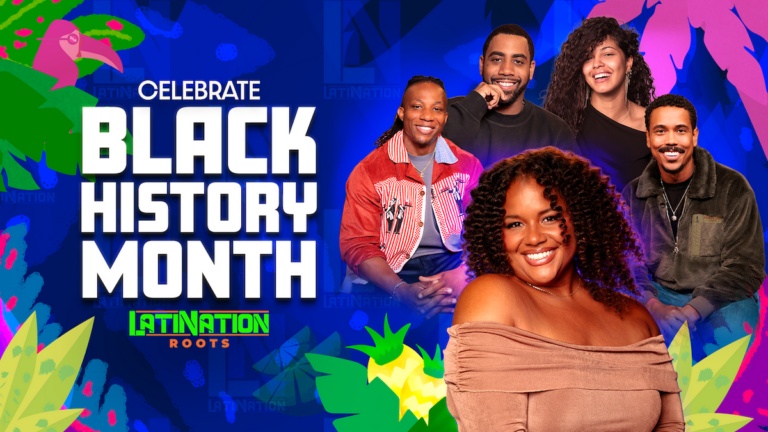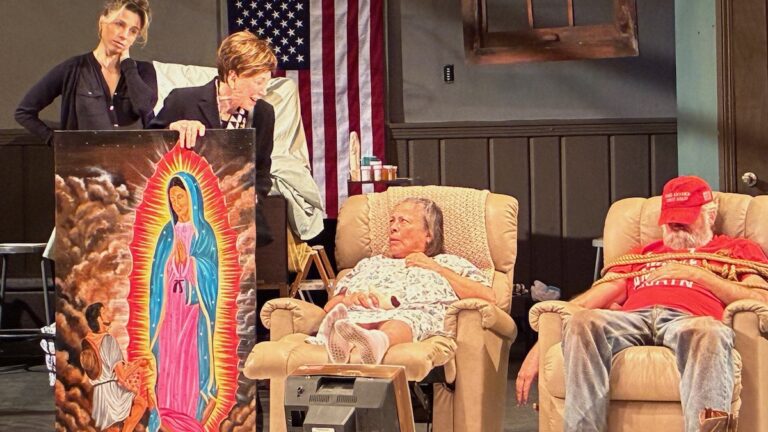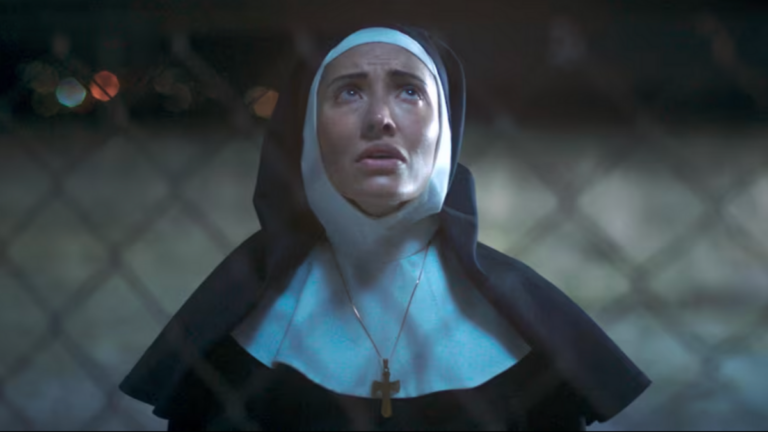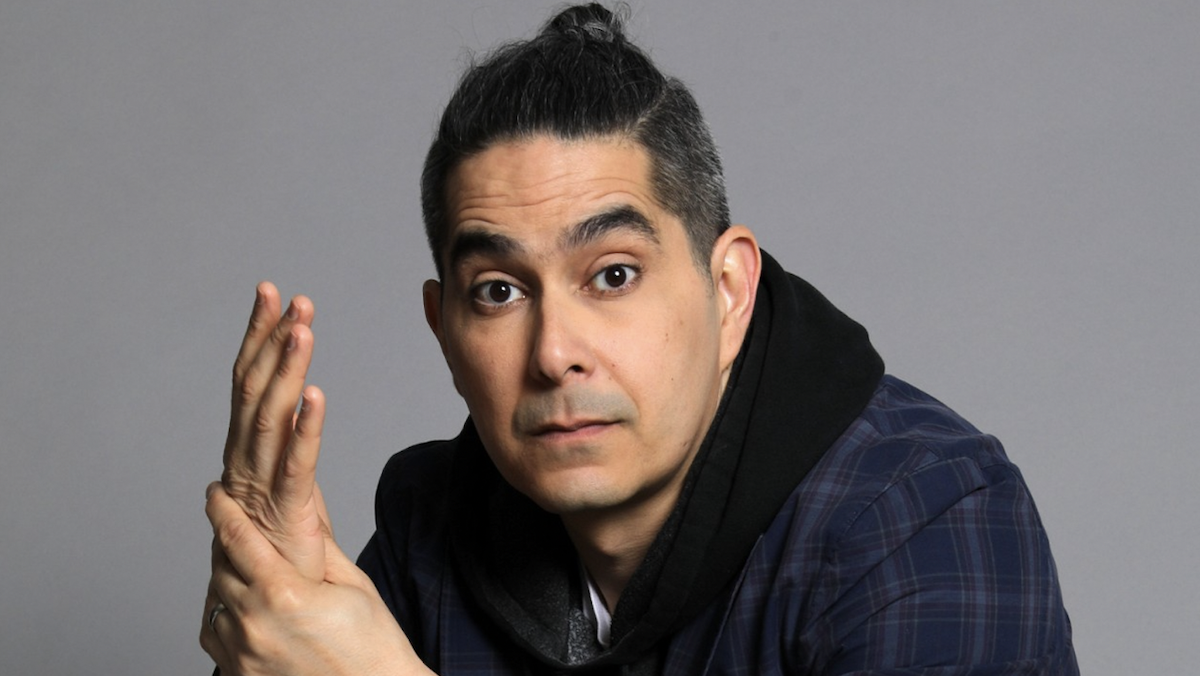
By Cris Franco
Newyorican playwright, Kristoffer Diaz was chosen by musical legend Alicia Keys to pen the book to her long awaited semi-autobiographical musical Hell’s Kitchen. For over ten years, the two collaborated on perfecting the story, that since its Broadway opening in April of 2024, has been playing to sold-out houses. Earning thirteen Tony Award nominations – including one for Mr. Diaz – the success of Hell’s Kitchen is due in great part to his skillful shaping of Keys’ musical catalogue into a dramatic tale of how an artist is forged by pain, courage, talent and love.
We caught up with the talented Mr. Diaz to discuss the agony and ecstasy of creating a new book to a musical, what it’s like collaborating with a superstar, and why creatives have to find their unique voice.
Cris Franco (CF): Hi, Kristoffer! Congratulations on the success of Hell’s Kitchen. You did a seemless job of sculpting Ms. Keys’ music into a powerful story. The play flows beautifully. Can you tell me about how your beginnings led to you becoming a playwright?
Kristoffer Diaz (KD): I grew up in Yonkers, which is just outside of New York City.
CF: Yes, I know. I’ve seen Hello, Dolly!
KD: (Laughing) It’s a little different than it was back in the Hello, Dolly! days.
CF: I’m glad to hear that. There were no people of color there back then.
KD: True. Yonkers now has a huge Black and Latino population. I grew up on the north side. But my family’s from all over New York City. My mom’s from the Bronx. My dad’s from Brooklyn and Manhattan. We’re Puerto Rican but I identify as a Newyorican.
CF: Newyorican is a very specific ethnicity.
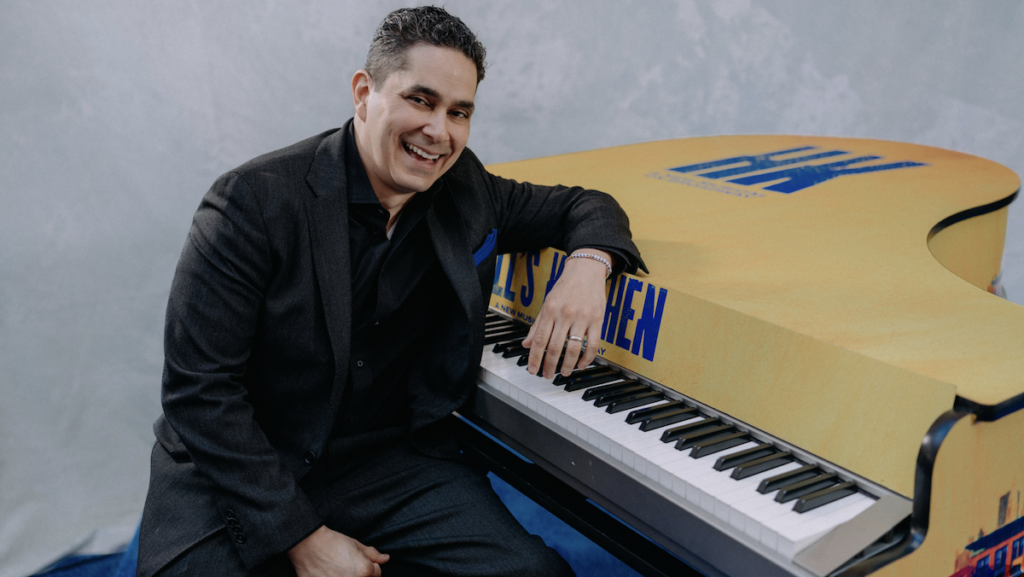
KD: Absolutely. My parents were both born in New York. My grandfather and his generation immigrated when he was 15-years-old. So, we’ve been in New York forever. My mom worked in the city and grew up a theater fan. She took me to see Broadway as a kid, so I’ve always had theater in my life. But theater as a career wasn’t on my radar until I got to high school. I had always been an athlete — a baseball player more than anything. Then, one day, I auditioned for the school show and I got in. Then I got into another show. And there I found my community. And I continued doing theater in college. Then I discovered John Leguizamo who was telling stories about people like me. And everything changed from there. I went to NYU and began writing.
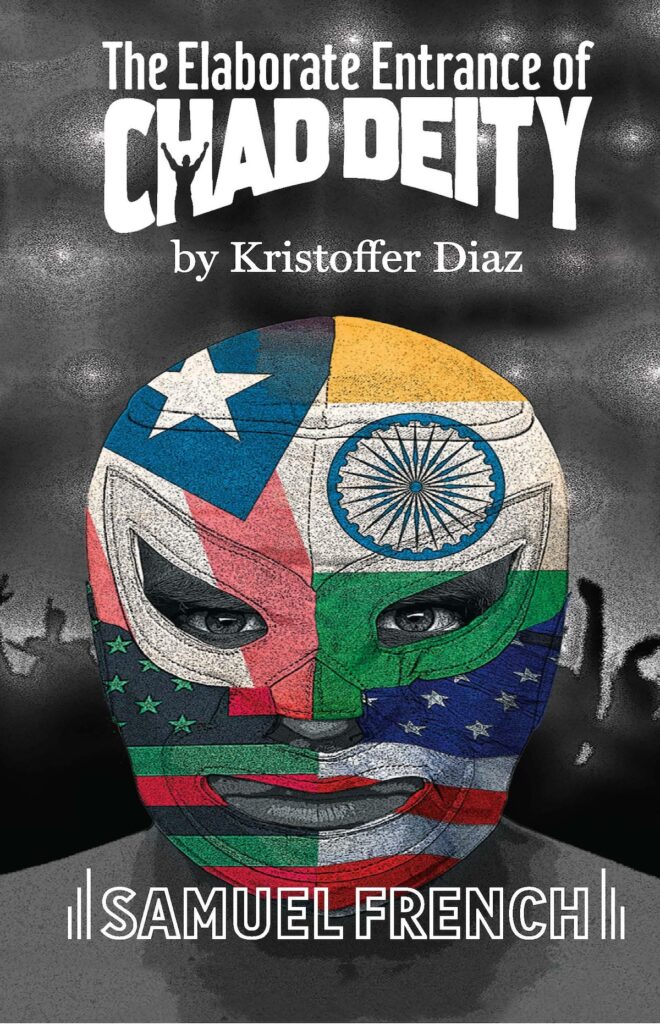
CF: When did you write your signature satire The Elaborate Entrance of Chad Deity? Which is a comment on racism, politics and machismo — all set the raucous world of lucha libre. I caught the Los Angeles run at the Geffen Theater and knew that a fearless and inventive mind had conceived it. It was explosively entertaining. More than a play, it was an event.
KD: We had a really great time with it. One of our original actors in Chicago and New York, Christian Litke, really made a meal of interacting with the spectators. He would pick-up audience members and curl them. Joan Rivers came to see it in New York and he had her stand and rub her hands all over his body. The audience loved it – and she loved it!
CF: Chad Deity has had lots of productions and won you many awards including The National Latino Playwriting Award (2008), The Obie Award (2011), NY Times Outstanding Playwriting Award (2011) and a Pulitzer Prize for Drama nomination (2010). But how did a play about wrestling lead you to Alicia Keys?
KD: Not long after that L. A. production I got an email from my agent stating that he was going to set up a meeting for me with Alicia Keys. Which was a fun email to get.
CF: And you had never met her before?
KD: No. When you have a property playing that’s in the public eye, you get a lot of emails about a meeting with this person or that person. But getting a message like this one – I was like, yes! This is fantastic. I’d been listening to her music for years. We met and Alicia said that she had an idea for a musical based somewhat on her life. She did have some specific ideas and wanted to meet with writers. I was close to her age and we shared a lot of the same reference points and sensibilities. We talked about classical music, hip-hop, New York City and we just hit it off. I got hired and we spent a few years just the two of us trying to develop something. We brought in a director Michael Greif and presented it to the Public Theater.
CF: I know that the story is semi-autobiographical. But how different is the musical’s plot from Alicia’s actual history?
KD: There are many departures from her real life because you don’t want to be stuck in facts. Alicia and I like to say that the show is emotionally true — the songs and story are drawn from her life. Plus, creatively, you need to have some distance because not all the songs are sung by “Ali” (the character based on Alicia) some are sung by the characters portraying her mom or her dad. So, I got permission early on from Alicia to write with broad strokes to maximize our dramatic potential.
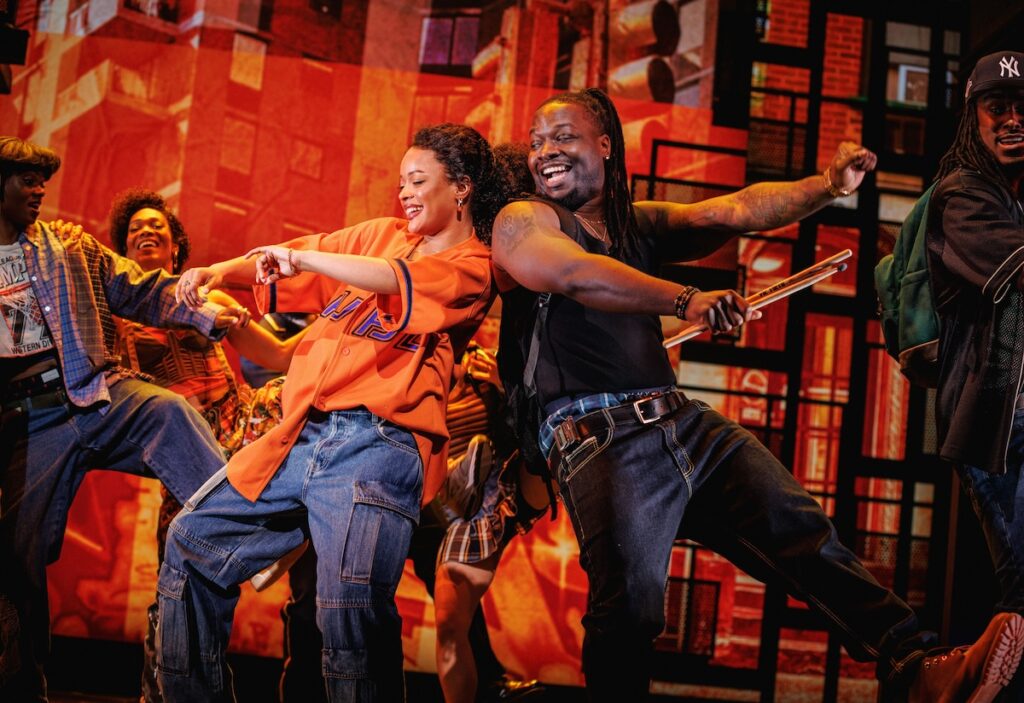
CF: I know that Ms. Keys wrote original songs. How did you approach her with the idea that a certain moment needed new material?
KD: It was an ongoing process between our team: Alicia, Michael Greif, our musical director Adam Blackstone and myself. We all knew that new music would be required and Alicia was ready to write it. But that was after we thoroughly studied her existing music library – trying to figure out what story we could craft from it.
We knew we wanted to incorporate Empire State of Mind, Girl on Fire, Fallen and You Don’t Know My Name because these are some of her most beloved pop songs. But not all of Alicia’s best known compositions told a story – specifically the story we were developing. So, we listened to some of her lesser-known work and Michael and I really liked Work on It and Pawn It All. There was something about them that we felt could support a narrative. Now Pawn It All is one of the show’s most exciting numbers. Shoshana Bean (who plays Ali’s mother) sings it and she tears down the house down every single night.
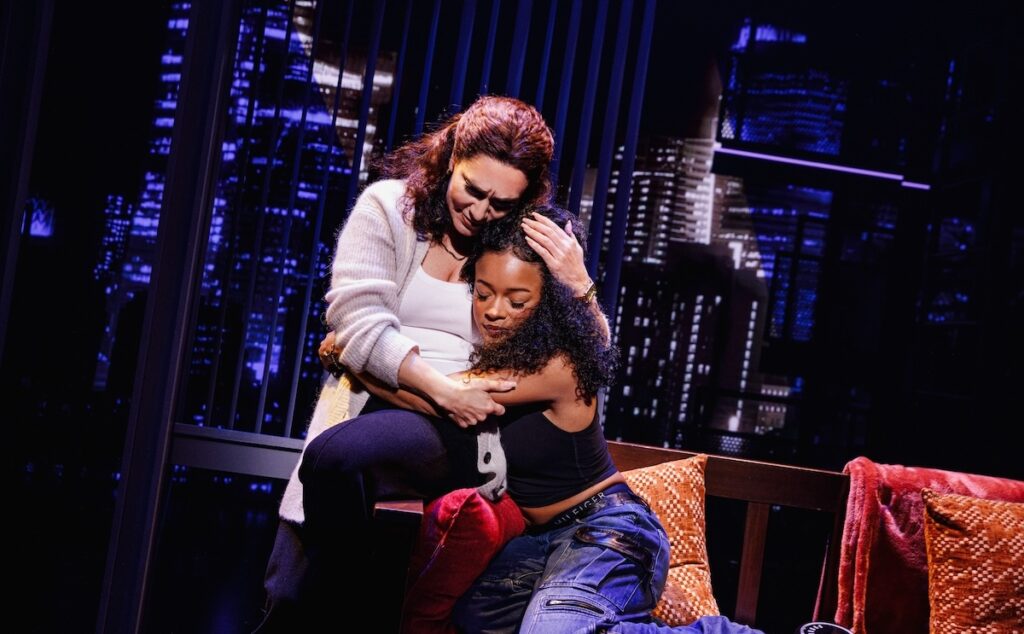
CF: She definitely killed it the night I saw the show.
KD: There were a few spots where we needed a song to express an emotion or moment that wasn’t in Alicia’s songbook. We’d chat about it and in a few cases Alicia was already working on something that could possibly work. So, she’d bring it in and we’d work it into the story. But, in some cases, after we’d tried a few songs, we’d realize that Alicia was just going to have to create something new to handle a specific storytelling moment. That’s how the song 17 sung by Shoshana Bean came to be. It’s the first real theater songs that Alicia has ever written and it’s great.
CF: Sounds like an exciting process. How did the musical change over the time? Meaning what you started out with versus what is being seen on Broadway?
KD: Great question. You know, we started out, not really sure what we were going to do. We thought it would be a love story, because musicals often revolve around love. And much of Alicia’s catalogue are, in a way, love songs. But early on Alicia knew that it was more about a moment of change and growth in her life. We realized that it was a coming-of-age story. And when we brought in Michael and showed him what we’d written, his analysis was this it was, indeed, a love story – but between a mother and daughter. How a daughter grew to appreciate all the hard work that her domineering mom had done on her behalf. And that was the big change from the early drafts to the final version. So, we pulled back the love story and created a messy love story between the mom and the dad.
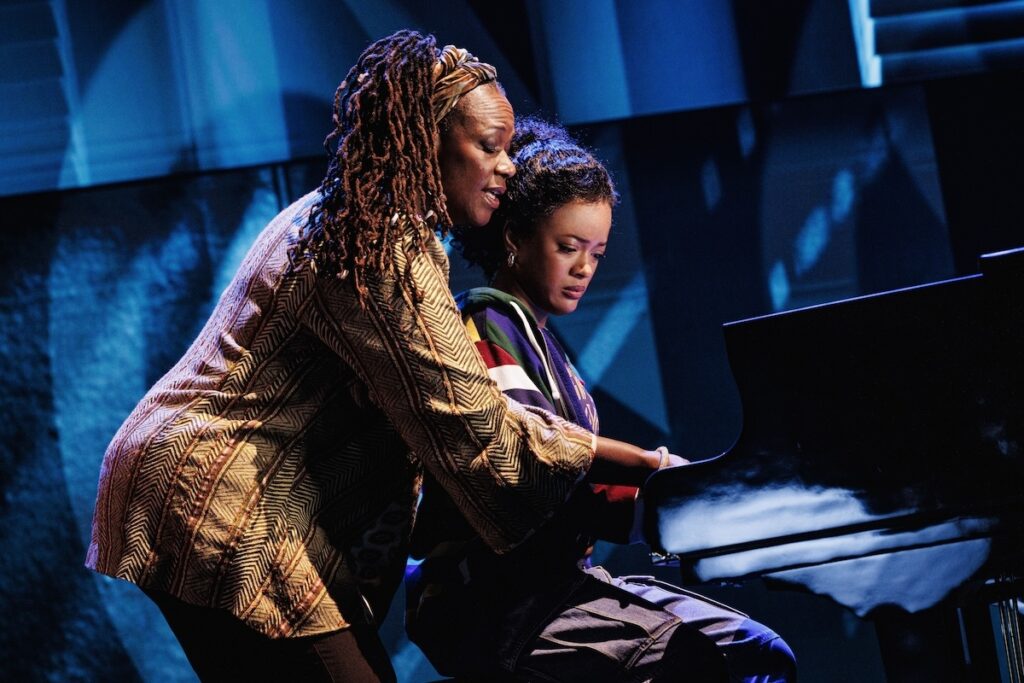
What we didn’t suspect was how powerful the character of Miss Liza Jane (Ali’s teacher) would become. But once Kecia Lewis was cast in the role, she made the teacher’s character so powerful that all the relationships began falling into place. Plus, once Miss Liza complicated Ali’s relationship with her mother, everything became deeper and stronger.
CF: Bravo! That was a brave choice to not fall into the musical boy-meets-girl trope and taking Ali’s character arc into a more challenging, more real, meaningful place. I really enjoyed the journey. Both Maleah Joi Moon (Ali) and Kecia Lewis (Miss Liza Jane) won the Tony Awards for Lead Actress and Featured Actress in a Musical respectively. And I think a lot of it has to do with the how authentically you wrote their characters. From the second she walked on-stage, I was enthralled with Ms. Moon. She is quite a discovery.
KD: Yeah. She’s pretty magical and it’s a hard, complicated role. I mean where are you going to find someone that young who can evoke all that is Alicia Keys – but still also be completely herself. Maleah does that. She was a gift to us.
CF: And how has it been working so closely with an artist as recognized as Alicia Keys?
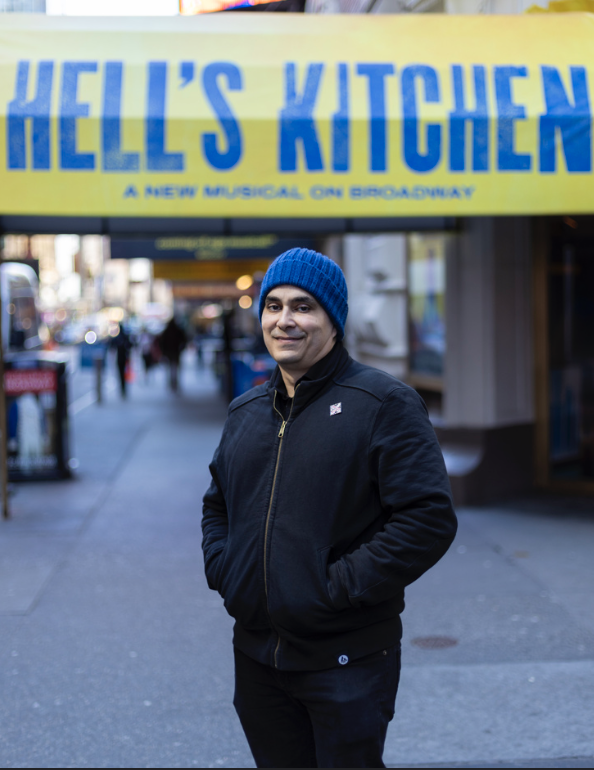
KD: She’s my sister now. We’re super close. When we started this project, Alicia was pregnant and I think me and my wife had just had our first son. Today we both have two kids. So, we’ve both went through a lot together while we were developing the show.
Alicia is a musical genius. She was a child prodigy and she just continues to learn and grow. She’s an incredible businesswoman and she’s good people, I just like being around her. She was a wonderful collaborator. And I never felt any power dynamics. We were both out to remain true to our art and ourselves. I feel honored to have been part of her career and to have made this thing together with her.
CF: Your show is selling out on Broadway, so I think your “thing” is going to be around for a long time. I know you’re currently a playwrighting teacher at NYU (New York University), right?
KD: Yeah, NYC is where I did both my undergrad and my first Master’s Degree. So, I’m back where I first came of age creatively. I’ve been teaching since I left grad school. First at an after school program and then at El Puente Academy for Peace and Justice in South Williamsburg, Brooklyn. It’s a school with a real interest in social activism through the arts – which is deeply connected to my sense of social responsibility to community. That is such a big part of what we want to communicate in Hell’s Kitchen. That we have to reach to our younger generations, get them to listen to their ancestors, to understand their history. Art is a gift and I take it really seriously.
CF: As a successful writer and arts educator, what advice would you give to a young aspiring playwright?
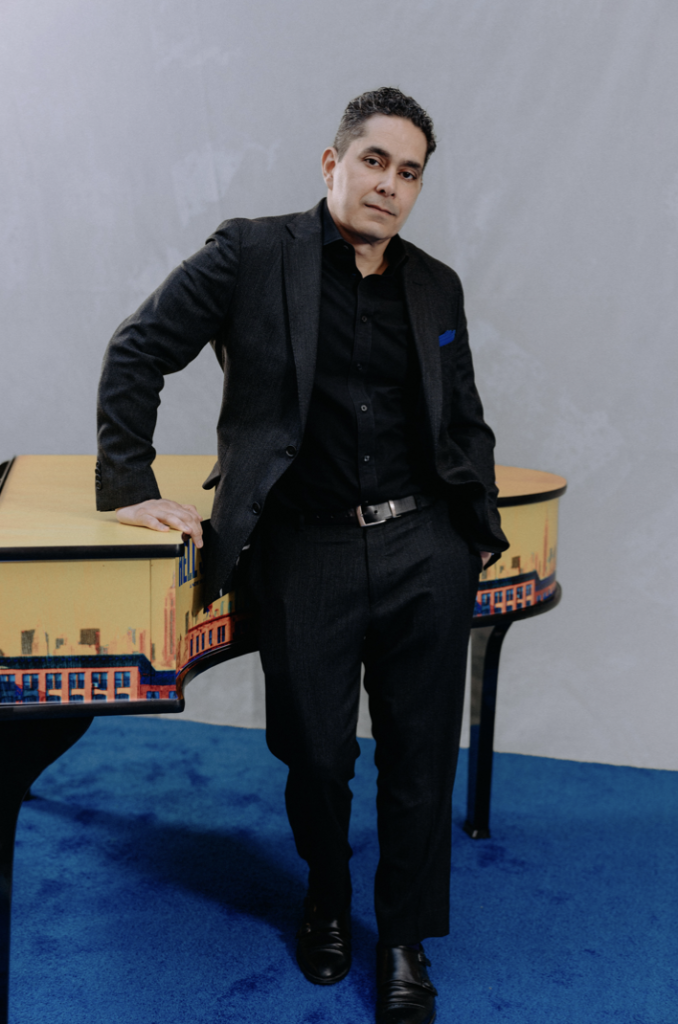
KD: Oh man. It’s a hard business. I’ll say that it’s about understanding the art form – and more importantly — putting a finger on the thing that you do that nobody else can do. When I started writing, I thought that I had to write plays that looked and felt like what I had been taught in school. Those plays where the characters sit on a couch, drinking wine revealing family secrets. Then I saw John Leguizamo’s work and he was just putting real folks on stage talking about everyday stuff. And I thought, hey, I could write about what interested me like hip-hop or wrestling.
CF: I’m into lucha libre, too: the good guys, the bag guys, the rivalries – it’s all so melodramatic. It’s like a telenovela for men. One last question. Do you feel that being a latino has impacted your career?
KD: Absolutely. How could it not? In my early days, I felt it would hold me back. I don’t speak Spanish and my work is not bilingual so I was always concerned that my work wouldn’t be, um, Latino enough. But the Latino theater community have been very, very, very, very, very, very, very good to me over the last 25 years. And not just producing my plays. Many great artists have reached out to me – offered me guidance, recommended me for jobs. John Leguizamo was the first person to contact me on the morning of my Tony Award nomination (Best Book of a Musical for Hell’s Kitchen). He texted me that he was proud of me. I also know Lin Manuel Miranda and it’s more than just because we share the same ethnicity, it’s about being part of a theatrical family. Being Latino is my cultural identity and I couldn’t be happier about being part of that community.
To experience the exciting and heartfelt dialogue of Kristoffer Diaz dramatically framing the thrilling musical compositions of Alicia Keys, log onto: https://hellskitchen.com
